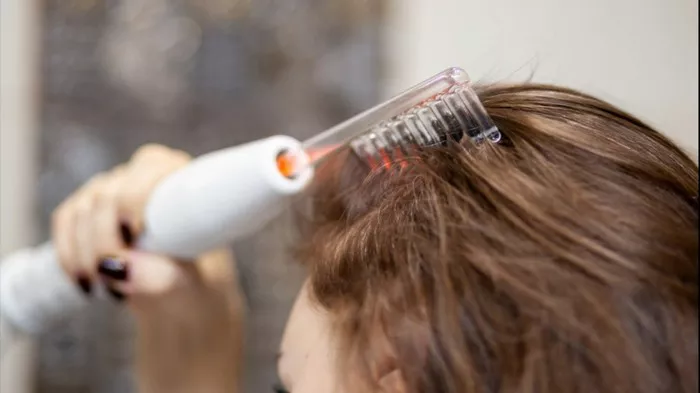Conditioning is a vital part of any hair care routine. It helps maintain moisture, manageability, and shine, especially for those with dry or damaged hair. However, a common question arises among hair enthusiasts: Can I condition my hair every day? This article will explore the effects of daily conditioning, the types of conditioners available, and best practices for incorporating conditioning into your hair care routine.
Understanding Hair Conditioning
Hair conditioning involves applying a product designed to improve the texture and health of your hair. Conditioners work by providing moisture, smoothing the hair cuticle, and reducing static and frizz. The main components of conditioners typically include:
Humectants: Ingredients that attract moisture to the hair.
Emollients: Ingredients that soften and smooth the hair.
Occlusives: Ingredients that form a barrier on the hair, helping to lock in moisture.
Why Condition Your Hair?
Conditioners serve several essential functions:
Moisturization: They replenish moisture lost during washing and styling.
Detangling: Conditioners help to reduce tangles and make hair easier to comb.
Damage Repair: They can help mend split ends and reduce breakage.
Improved Texture: Conditioners enhance the overall feel and appearance of your hair.
Daily Conditioning: The Pros and Cons
Pros of Daily Conditioning
Enhanced Moisture: For those with dry, curly, or frizzy hair, conditioning every day can provide the necessary hydration to keep hair soft and manageable.
Detangling Benefits: Daily conditioning can help reduce knots and tangles, making it easier to style your hair.
Improved Manageability: Conditioning regularly can make hair easier to style, leading to smoother, shinier locks.
Cons of Daily Conditioning
Product Buildup: Using conditioner every day, especially if it’s heavy or contains silicones, can lead to product buildup on the hair and scalp. This buildup can make hair appear dull and lifeless.
Greasy Appearance: Some hair types may feel greasy or weighed down after daily conditioning, particularly if they have fine or oily hair.
Over-conditioning: In some cases, conditioning too frequently can lead to a phenomenon known as “over-conditioning,” where hair becomes overly soft and lacks structure.
See Also: Can I Wash Permed Hair Every Day? Caring for Your Curls
Should You Condition Daily?
The answer to whether you should condition your hair every day depends on various factors, including your hair type, texture, and individual needs.
Hair Type
Curly or Coily Hair: Curly and coily hair types often require more moisture. Daily conditioning can help maintain hydration and manageability.
Straight or Wavy Hair: Straight and wavy hair types may not need daily conditioning. Instead, conditioning 2-3 times a week may be sufficient to keep hair healthy without causing buildup.
Fine or Oily Hair: If your hair is fine or naturally oily, conditioning every day may weigh it down. A lighter conditioner or a conditioning spray may be a better option.
Hair Condition
Damaged or Chemically Treated Hair: If your hair is damaged from heat styling or chemical treatments, daily conditioning can help restore moisture and improve its health.
Healthy Hair: If your hair is generally healthy, you might not need to condition every day. In this case, alternating days or using a lighter conditioner may suffice.
Best Practices for Conditioning Hair
If you decide to incorporate daily conditioning into your routine, here are some best practices to follow:
Choose the Right Conditioner
Select a conditioner that suits your hair type and needs. Look for:
Lightweight Formulas: For fine or oily hair types, opt for lightweight conditioners that won’t weigh your hair down.
Deep Conditioners: For dry or damaged hair, consider using a deep conditioning treatment once a week to provide extra moisture.
Focus on the Ends
When applying conditioner, focus on the ends of your hair, where it tends to be the driest. Avoid applying too much product to the roots, as this can lead to greasiness.
Rinse Thoroughly
Ensure you rinse your conditioner out thoroughly to prevent buildup. Residual product can weigh hair down and make it look dull.
Experiment with Leave-In Conditioners
If you find that traditional conditioning makes your hair feel heavy, consider using a leave-in conditioner. These products can provide hydration without the heaviness of a traditional rinse-out conditioner.
Listen to Your Hair
Pay attention to how your hair responds to daily conditioning. If you notice any signs of buildup, greasiness, or over-softness, adjust your routine accordingly.
Signs You May Need to Adjust Your Routine
If you’re conditioning daily, look out for these signs that it may be time to change your routine:
Buildup: Your hair looks dull or lifeless, or you notice product residue.
Grease: Your hair feels greasy or weighed down after conditioning.
Loss of Structure: Your hair is overly soft and lacks volume or structure.
Conclusion
Conditioning is a crucial step in maintaining healthy, beautiful hair, but whether to condition daily depends on individual hair types and conditions. Daily conditioning can benefit those with dry, curly, or damaged hair, while others may find that less frequent conditioning works best for their needs.
Ultimately, the key is to listen to your hair and adjust your routine based on its response. By selecting the right products and following best practices, you can ensure that your hair remains healthy, hydrated, and vibrant, regardless of how often you choose to condition.
You Might Be Interested In
- The Truth About Washing Dyed Hair: Daily Care or Damage?
- Air Dry vs. Towel Dry: Which Method Is Better for Your Hair?
- Is Drinking Water Good for Hair Growth?


